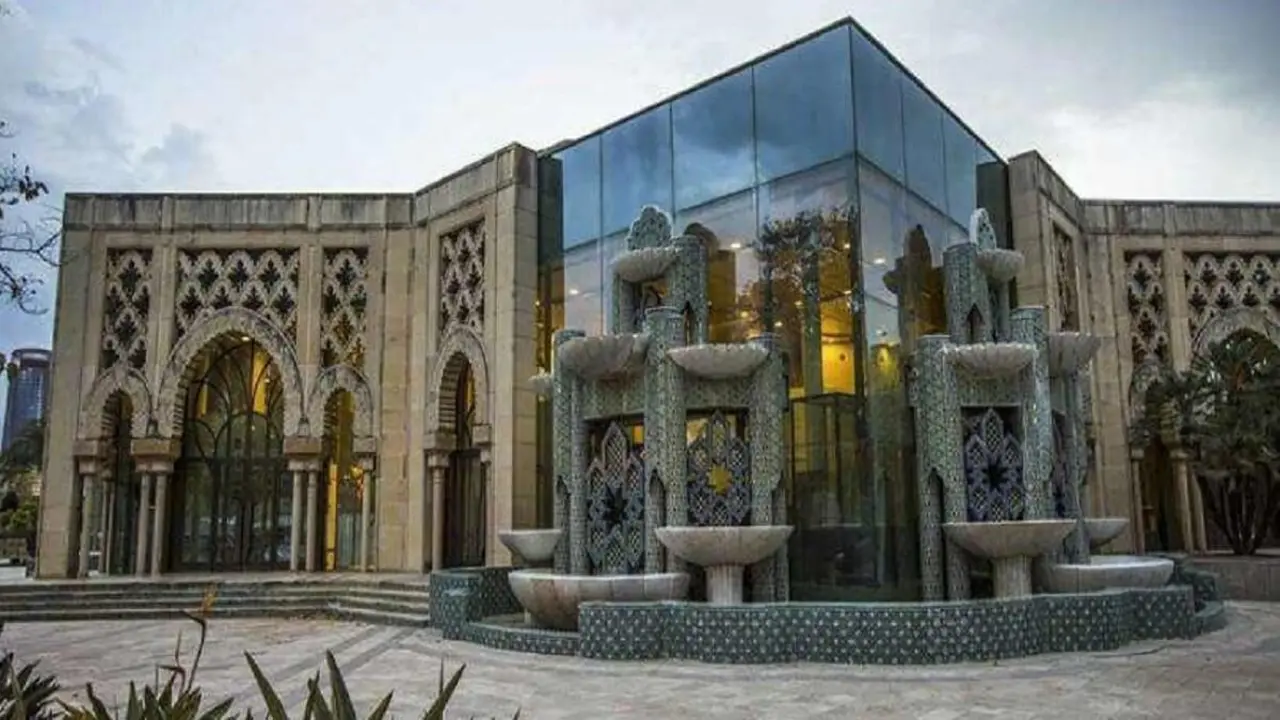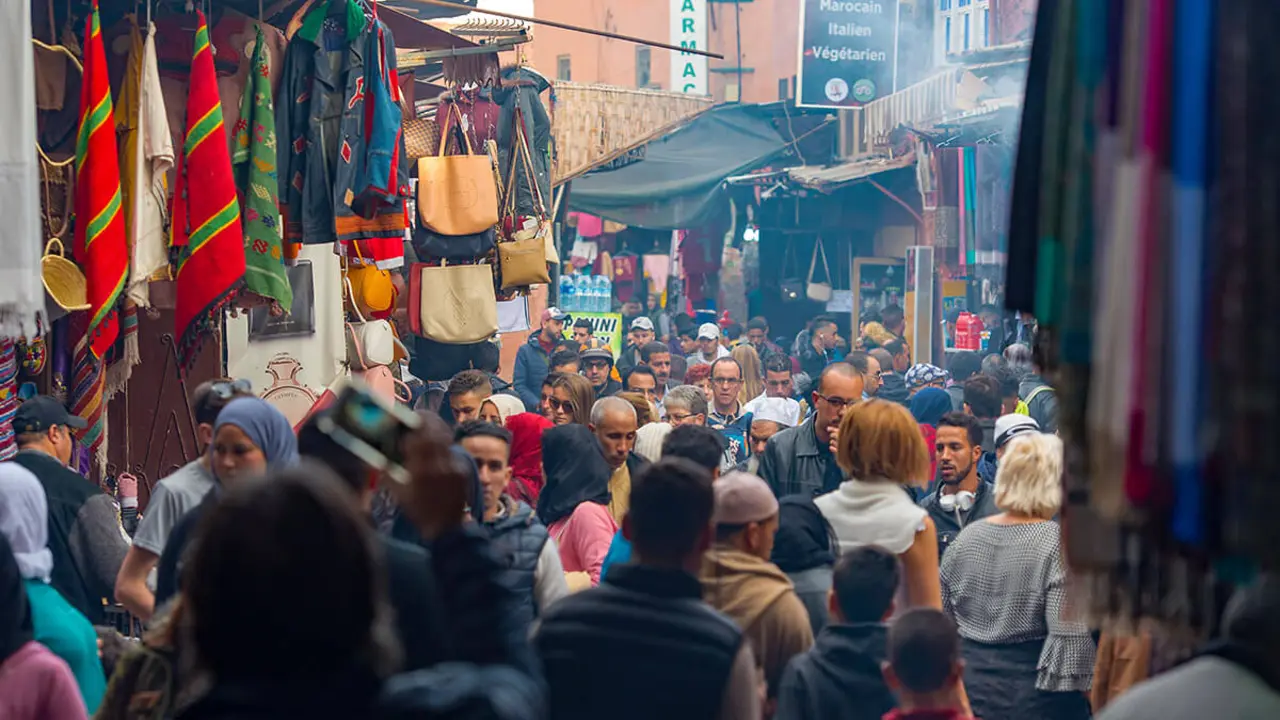Peace is the way out of all current crises, yet it is what we lack most, says Guterres

Around the world, "peace is the missing piece" as conflicts rage, geopolitical divisions grow, polarisation deepens, human rights are trampled, inequalities explode and we mock nature as it pursues its addiction to fossil fuels, the UN Secretary-General said Wednesday, addressing the General Assembly with a list of priority areas for action.
"Our Organisation was founded on the pursuit of peace," António Guterres said. "Peace is our raison d'être. Yet, as we scan the landscape of the world today, what is most dramatically missing is peace."
From the Gaza conflict to the war on the environment, from combating toxic disinformation and hate speech to creating sustainable and inclusive practices, peace is the thread that weaves the common fabric of the world, he said.
"Peace is the way out of these interrelated crises; it is a rallying cry... and a call to action," he said, outlining a way forward to achieve common goals that, despite turbulent times, offers reason for hope.
Responding to people's calls for peace, from Gaza to Ukraine
Civilians bear the brunt of crises, from the waves of terrorism sweeping the Sahel and the wars in Gaza, Sudan and Ukraine to the armed groups in eastern Democratic Republic of Congo and the gangs ravaging Haiti.
"For millions of people caught in conflicts around the world, life is a deadly, daily, hungry hell," he said, citing record numbers of people fleeing their homes in search of safety.
"They are crying out for peace; we must listen to them and act," he stressed, urging a push for peace around the world.
On the Gaza crisis, he said the situation is "a festering wound in our collective conscience that threatens the entire region".
Nothing justifies the horrific terrorist attacks launched by Hamas against Israel on 7 October and the kidnapping of Israelis, he said. At the same time, there is no justification for the collective punishment of the Palestinian people.
"It is time for an immediate humanitarian ceasefire and the unconditional release of all hostages", which must lead quickly to irreversible action towards a two-state solution, he stressed.
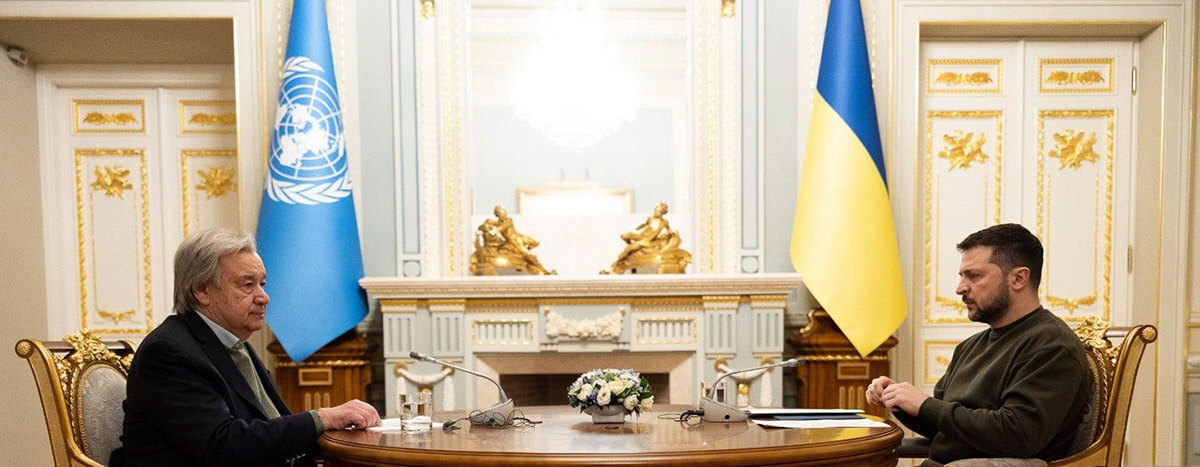
We are entering an era of chaos
Indeed, if all countries fulfilled their obligations under the UN Charter, the right of every person to a life of peace and dignity would be guaranteed, he said.
However, governments are ignoring and undermining the very principles of multilateralism with zero accountability, he warned, noting that the Security Council is "blocked" by geopolitical fissures.
"The current dysfunction is deeper and more dangerous," he said, adding that the mechanisms well established during the Cold War, created to help manage superpower relations, are absent in today's multipolar landscape. "Our world has entered an era of chaos."
What is the result? A dangerous and unpredictable pitched battle with impunity, from competition for stealthier nuclear weapons to new potential areas of conflict and weapons of war, creating new ways of killing each other.
New Agenda for Peace
"We need to strengthen and renew global peace and security frameworks to deal with the complexities of today's multipolar world," he said, underlining this reasoning, which inspired the UN's New Agenda for Peace.
The agenda calls, among other things, for reform of the Security Council, addressing strategic risks through a new commitment to the elimination of nuclear weapons and intensified efforts to prevent conflict, and proposes measures to mitigate the impact of geopolitical competition on people, as well as avoiding the fragmentation of global trade rules, supply chains, currencies and the internet.
Recognising the links between sustainable development, climate action and peace, the agenda calls for a range of measures such as the inclusion of women and youth in all peace processes and respect for all human rights, and urges the development of rules and frameworks to regulate the use of new technologies, including artificial intelligence, in the military domain.
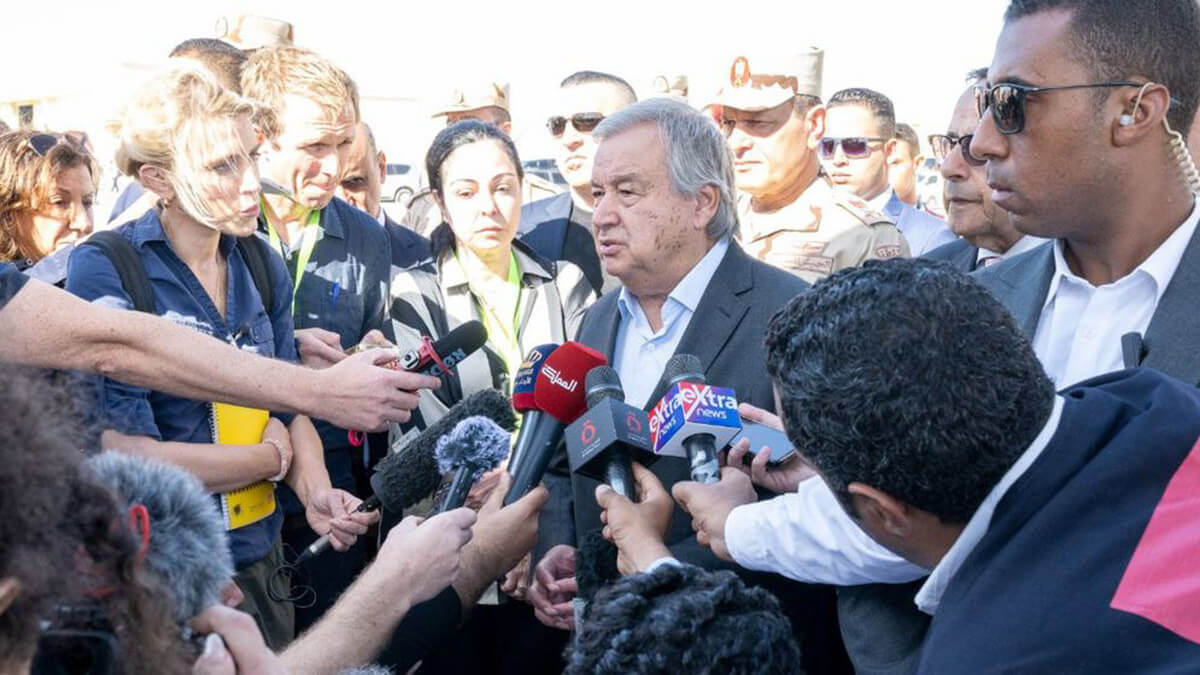
Human rights versus hate speech
Around the world, communities are divided by the rise of hate speech, discrimination, extremism and human rights violations, along with the proliferation of anti-Semitism, anti-Muslim bigotry and white supremacist ideology.
The speed and scope of misinformation and hatred have increased exponentially in the digital age, and the profit motive has helped extremists to sow division. Meanwhile, real and perceived inequalities, economic deprivation and rapid social and economic change fuel people's fears.
In this regard, the UN advocates for a renewed social contract, based on trust, justice and inclusion and anchored in human rights. Part of the strategy includes the Secretary-General's Call to Action for Human Rights and the forthcoming UN code of conduct for information integrity, to be issued before the Summit for the Future in September.
At the same time, he said the new UN Advisory Body on artificial intelligence initiated a global conversation on how this pervasive technology can benefit us all.
Building a sustainable future
Sustainable and inclusive development depends on peace, and meeting the Sustainable Development Goals (SDGs) is the most effective way to build peace and prosperity, he said.
Highlighting the achievements made to accelerate the achievement of the 17 Goals set out in the 2030 Agenda, he said that world leaders have made a number of commitments such as stimulating the achievement of these goals, the High Seas Treaty to protect marine biodiversity and the Loss and Damage Fund to help vulnerable countries recover from the impact of extreme weather events.
Looking ahead to the Future Summit, he said, "We have an opportunity to shape the multilateralism of the coming years. I see a truly dynamic effort to build a more effective, inclusive and renewed multilateralism, attuned to the 21st century and our increasingly multipolar world".
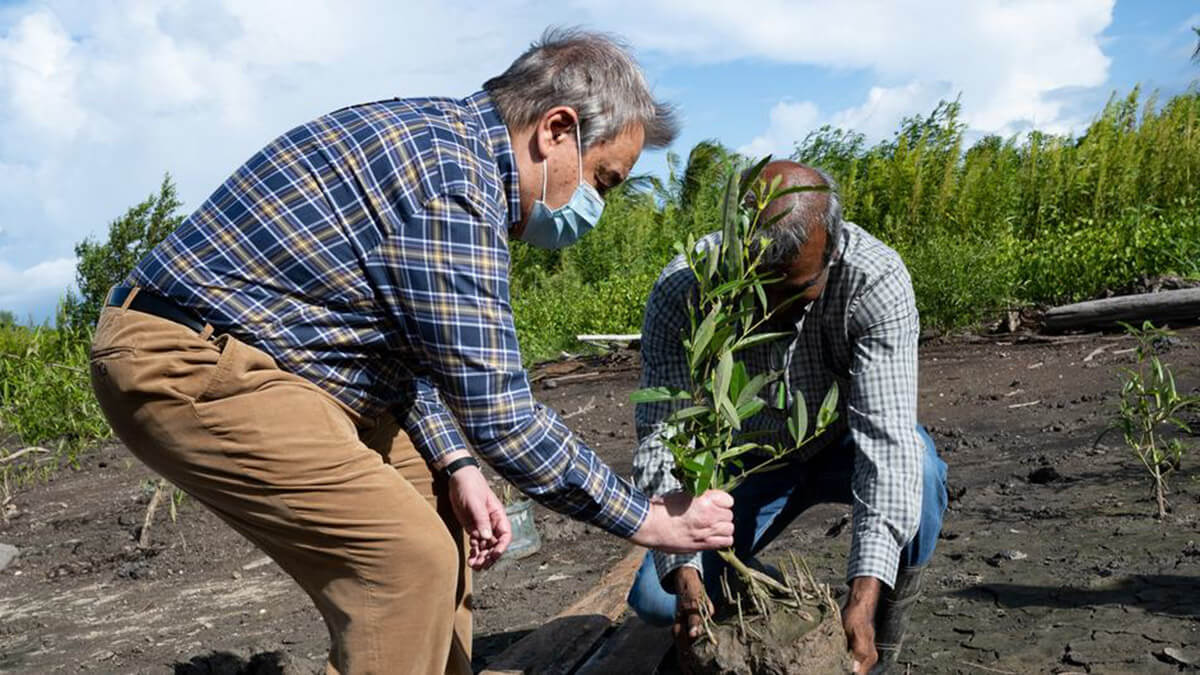
Making peace with the planet
The climate crisis remains the defining challenge of today, he said.
"Humanity has waged a war that we can only lose: our war with nature," he warned. "We must make peace with the planet."
The fossil fuel era is on its last legs, and the renewable energy revolution is unstoppable, he said.
"But we must act this year to ensure that the transition is just for people and the planet, and that it is fast enough to avoid a full-blown climate catastrophe," he warned.
This requires tripling global renewable energy capacity and doubling energy efficiency by 2030, as well as exploring innovative sources of climate finance, as countries in climate chaos are entitled to much greater support, he said.
The most essential of human endeavours
"In one way or another, every element connects to the most essential of all human endeavours: the pursuit of peace," he said. "Peace can achieve wonders that wars will never achieve. Wars destroy; peace builds".
But in today's troubled world, building peace is a conscious, bold, even radical act. It is humanity's greatest responsibility.
"In this difficult and divided time, let us fulfil that obligation for today and for future generations, starting here, starting now," he said. "For my part, I can guarantee that I will never stop pushing for peace."




